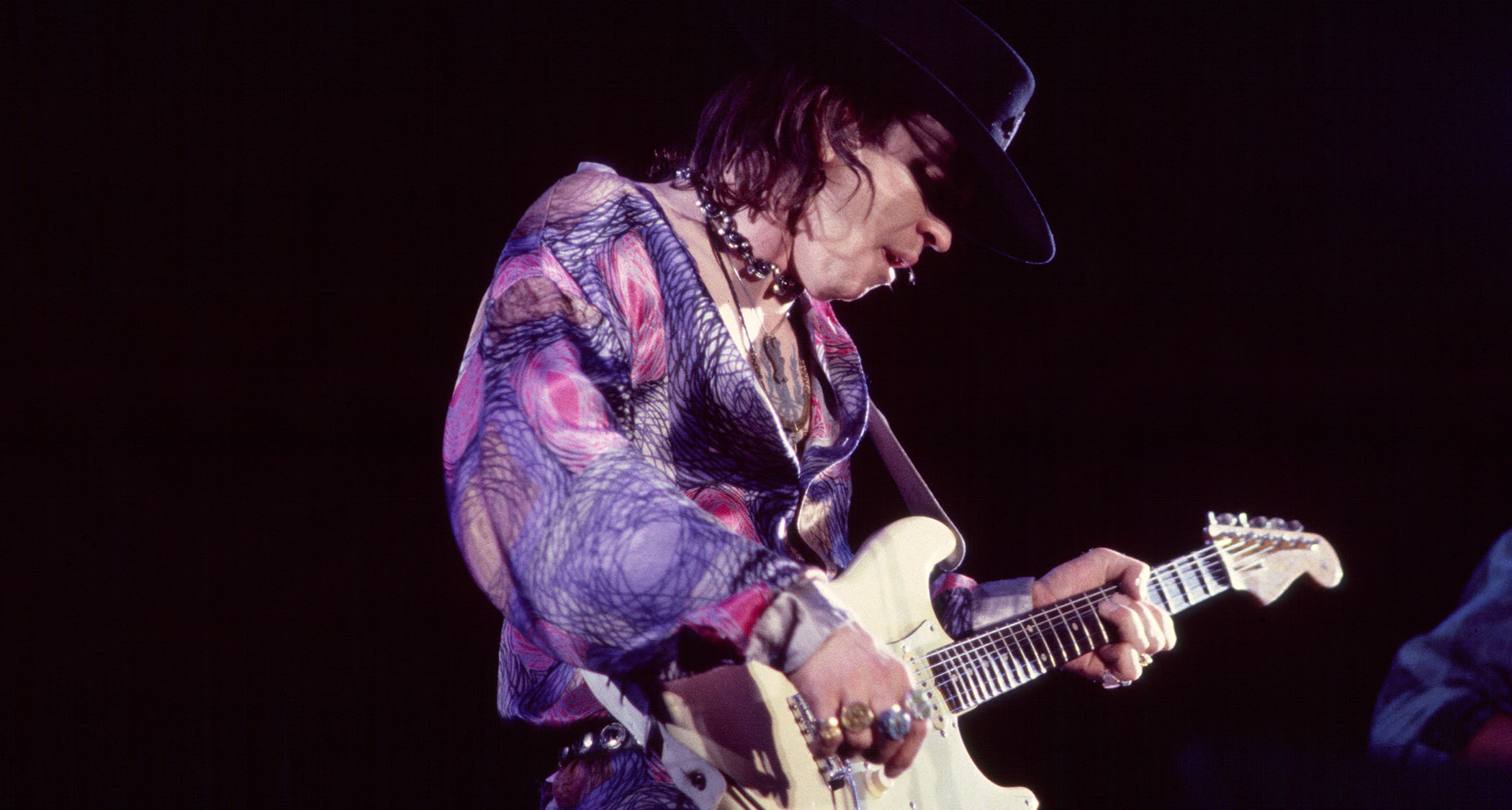Guitar World Verdict
These Ross reissues are a decent bunch of pedals that all do their appointed job well. Due to its reputation, we expect the Compressor to end up on quite a few ’boards, and while the rest do face stronger competition, they’re strong choices with the advantage of dual modes.
Pros
- +
Cool vintage look.
- +
Good sound quality.
- +
Soft-touch switching.
- +
The two modes add flexibility.
Cons
- -
Push-in side switch is a bit fiddly.
- -
Some users would probably prefer more than two knobs.
You can trust Guitar World
Ross Pedals review: The back story
Ross pedals were around in the late 1970s, the brainchild of Bud Ross of Kustom, whose amps had an unmistakable padded or quilted look and were used by several big bands of the era, notably Creedence Clearwater Revival.
Unlike those distinctive amps, though, the first pedals were far from original and legal action threatened by MXR led the company to come up with its own distinctive enclosures in 1978, featuring knobs that were recessed into the metal chassis.
The pedal line continued with production moving from the USA to Taiwan in the early 1980s until the demise of the brand. Cameron Ross (Bud’s grandson) tried to revive the brand as Ross Audibles in 2019, but it was a partnership in 2020 with Josh Scott of JHS Pedals that really got the current ball rolling, resulting in the release of five pedals last year.
Of the five, the Distortion, Phaser and Compressor are said to replicate the circuitry of the ’70s US-built pedals, while the Chorus is based on a later Taiwan-made pedal. The Fuzz is a bit of an anomaly as it’s not based on any previous pedal, taking its circuitry from a 1960s Kustom amplifier.
While the pedals channel a vintage vibe with their large enclosures, they now have their sockets and power inputs at the top end of the enclosure, and bypass is via a soft‑touch footswitch.
The knobs may have the same functions as the original pedals, but there are extra sound variations courtesy of a small push-switch on each pedal’s left cheek, allowing access to two different modes.
Ross Pedals review: Ross Phaser
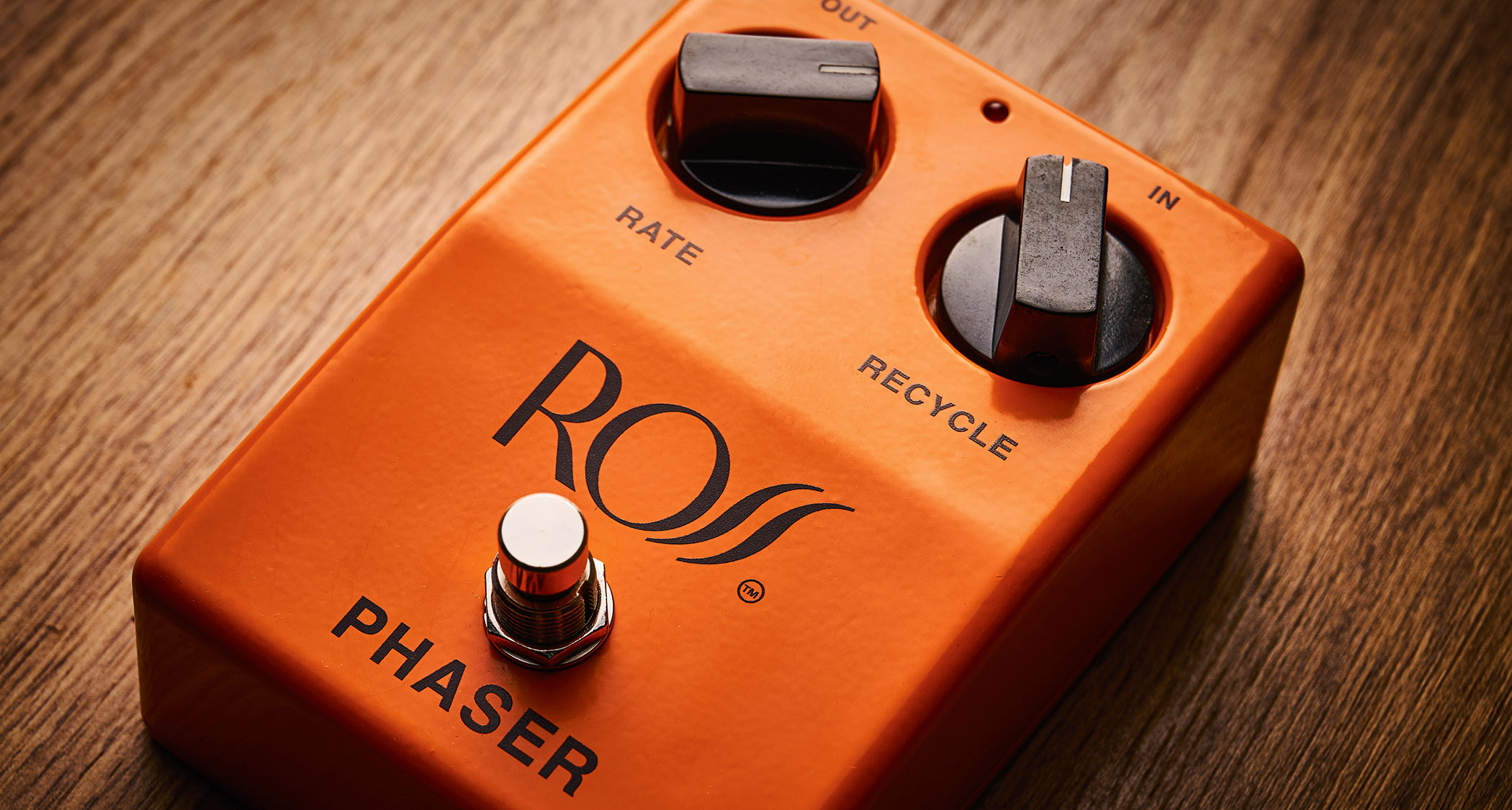
Looking at the bright orange phaser, it’s hard not to think ‘MXR’, but this Ross unit has its own nifty trick in that it has a switch that changes it from being a straight phaser pedal to putting out Uni-Vibe-style sounds.
All the latest guitar news, interviews, lessons, reviews, deals and more, direct to your inbox!
The phasing here is controlled by the Rate knob and a Recycle knob, which would probably be called Feedback or Regeneration elsewhere, that sends some signal back to the input.
Keeping the Recycle at minimum, the phasing runs through a range similar to an MXR Phase 90, from a long slow sweep to a fast warble. It’s typical vintage phasing with a pleasant warmth to the sound and clear top-end.
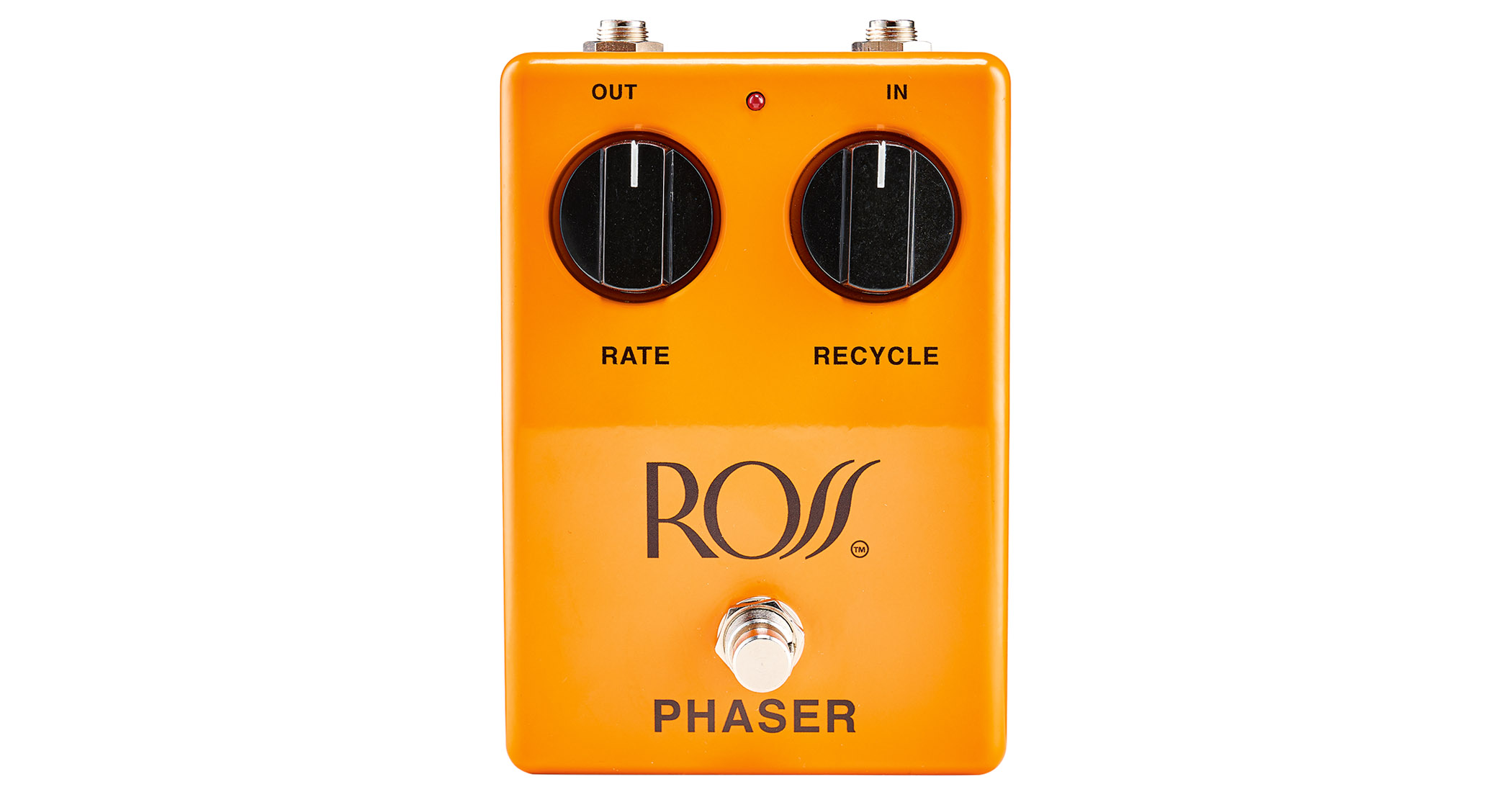
Bringing in the Recycling knob increases the intensity of the effect so the whole cyclical movement becomes more obvious, and the increased resonance makes the ‘wow’ of the effect more prominent.
The Uni-Vibe setting is a practical bonus that offers a passable flavour of the real thing and sits well with dirt pedals.
Ross Pedals review: Ross Fuzz
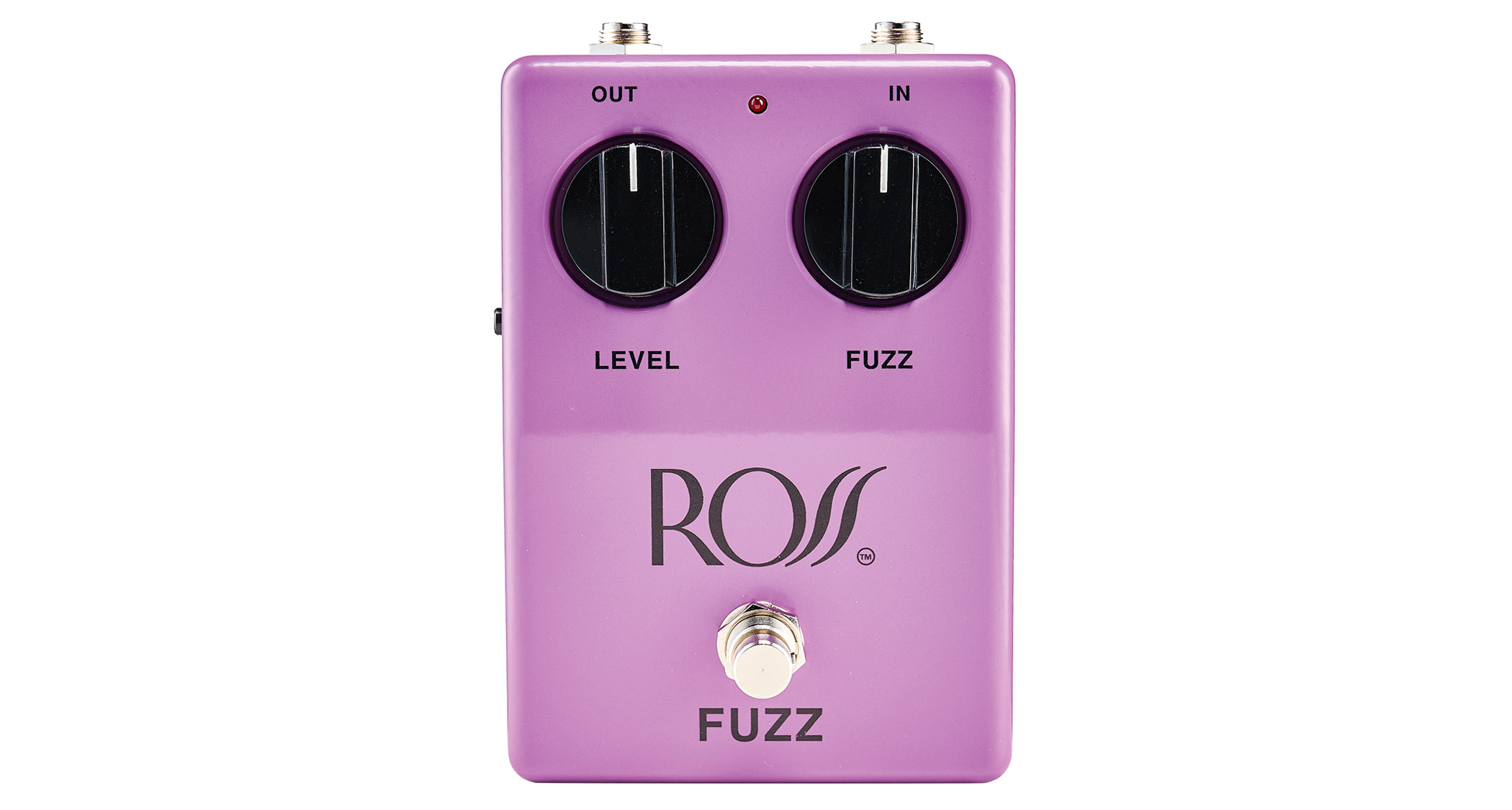
Ross had no fuzz pedal in its previous lifetime, so this particular example takes some circuitry from a vintage Kustom amp and delivers it via Level and Fuzz knobs in a choice of two modes, Vintage and Modern.
From the minimum setting of the Fuzz knob, what the pedal puts out is a nice edgy distortion until it gets to about three o’clock and then you are into full-on fuzz.
While there is no tone knob on this pedal, its voicings have been nicely chosen for contrast. Vintage is grainy and pokes through in the upper mids, and we had fun playing Tony Peluso’s fuzzed-out solo from the Carpenters’ Goodbye To Love with it; Modern is instantly louder, fuller and brighter. Both are eminently usable and clean up well when needed.
Ross Pedals review: Ross Compressor

If any of the Ross pedals has gained anything near-iconic status, then it is the Compressor. Original examples now command a premium price and it’s the pedal that many manufacturers use as a basis for their own models.
A lot of that kudos is down to one being used by Trey Anastasio of Phish back in the ’90s, but basically the Ross compressor draws on an MXR Dyna Comp with some circuit modifications.
Compression is turned up by the Sustain knob, the action of which basically sets the threshold where compression starts working, and Level sets the output volume. The no-nonsense two-knob layout is great for quick setup – while there’s no attack and decay to tweak, the built-in values are well chosen and work really well with guitar.

It’s great for a clean boost, some smooth levelling or a more potent squish and sustain. A Bright switch gives you a more cutting pokey sound as a choice, but could be a necessity if you have a darker-sounding guitar or amp.
Ross Pedals review: Ross Distortion
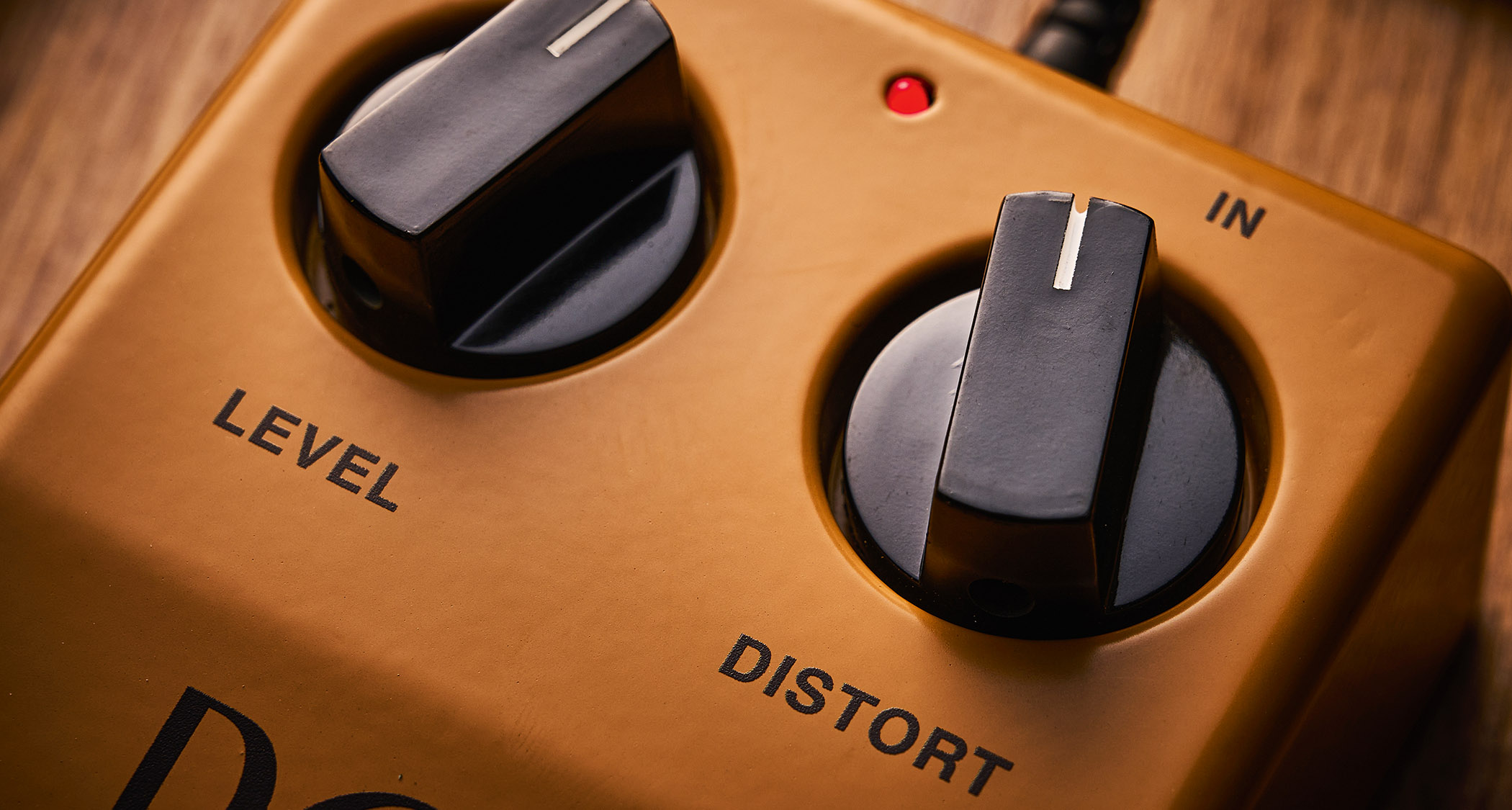
The original Ross distortion pedal was derived from the MXR Distortion Plus and its hard-clipping diode circuitry.
This new version, however, covers different iterations of the Ross with a choice of Silicon or Germanium via the side-panel switch. Level and Distort knobs dial in the dirt, which starts at a just-breaking-up drive and does the whole raunchy amp thing.

The tone is nicely balanced and sits in a frequency range that shouldn’t deviate too much from your rig’s usual sonics, but the switch on the side does offer variations on the voice – Silicon is louder and brasher, while the Germanium has a little more give in terms of playing feel.
Ross Pedals review: Ross Chorus

This is a typical two-knob analogue chorus pedal in the vein of the Boss CE-2, sporting similar Rate and Depth knobs, and it has a bright‑sounding chorus effect with plenty of range: turn up the rate, set the depth to taste and there’s a practical fast rotary speaker sound.
The two-for-one bonus is that you also get a Vibrato mode via the switch on the pedal’s side that removes the dry portion of the sound.
Ross Pedals review: Specs
Ross Phaser
- PRICE: $/£189
- ORIGIN: USA
- TYPE: Phaser pedal
- FEATURES: Buffered bypass
- CONTROLS: Rate, Recycle, Phaser/Univibe switch, Bypass footswitch
- CONNECTIONS: Standard input, standard output
- POWER: 9V DC adaptor 42mA
- DIMENSIONS: 89 (w) x 130 (d) x 55mm (h)
Ross Fuzz
- PRICE: £189
- ORIGIN: USA
- TYPE: Fuzz pedal
- FEATURES: Buffered bypass
- CONTROLS: Level, Fuzz, Vintage/Modern switch, Bypass footswitch
- CONNECTIONS: Standard input, standard output
- POWER: 9V DC adaptor 46mA
- DIMENSIONS: 89 (w) x 130 (d) x 55mm (h)
Ross Compressor
- PRICE: £189
- ORIGIN: USA
- TYPE: Compressor pedal
- FEATURES: Buffered bypass
- CONTROLS: Level, Sustain, Vintage/Bright switch, Bypass footswitch
- CONNECTIONS: Standard input, standard output
- POWER: 9V DC adaptor 37mA
- DIMENSIONS: 89 (w) x 130 (d) x 55mm (h)
Ross Distortion
- PRICE: £189
- ORIGIN: USA
- TYPE: Distortion pedal
- FEATURES: Buffered bypass
- CONTROLS: Level, Distort, Germanium/Silicon switch, Bypass footswitch
- CONNECTIONS: Standard input, standard output
- POWER: 9V DC adaptor 40mA
- DIMENSIONS: 89 (w) x 130 (d) x 55mm (h)
Ross Chorus
- PRICE: £189
- ORIGIN: USA
- TYPE: Chorus pedal
- FEATURES: Buffered bypass
- CONTROLS: Rate, Depth, Chorus/Vibrato switch, Bypass footswitch
- CONNECTIONS: Standard input, standard output
- POWER: 9V DC adaptor 47mA
- DIMENSIONS: 89 (w) x 130 (d) x 55mm (h)
- CONTACT: Ross Electronics
Trevor Curwen has played guitar for several decades – he's also mimed it on the UK's Top of the Pops. Much of his working life, though, has been spent behind the mixing desk, during which time he has built up a solid collection of the guitars, amps and pedals needed to cover just about any studio session. He writes pedal reviews for Guitarist and has contributed to Total Guitar, MusicRadar and Future Music among others.



